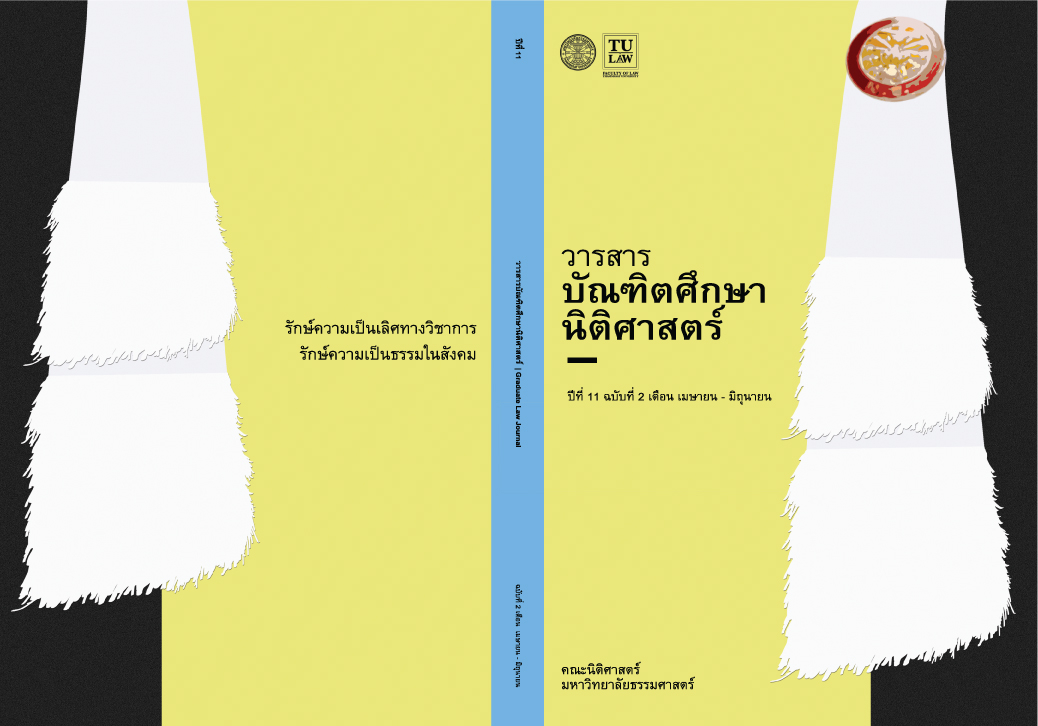ปัญหาการวินิจฉัยข้อพิพาททางการเมืองโดยศาลรัฐธรรมนูญไทย
Keywords:
Political Disputes, Thai Constitutional Court, LegitimacyAbstract
Constitutional Court rulings are accepted by all parties only when they, and the public, accept that the rulings are justified, in line with democratic rule. Policy and political decisions must relate to
the people, who possess the ultimate power in political decision-making. Constitutional Court legitimacy depends on the understanding that
the Constitutional Tribunal is a fully-fledged judicial or semi-judicial organization. If the Constitutional Court is viewed as a full judicial organization, its jurisdiction must be limited to legal disputes, with
no power over narrowly defined political disputes. Yet in practice,
the state court often appears as semi-judicial and semi-political.
The Constitutional Court may have jurisdiction over legal disputes related to politics and exclusively political disputes, since its judges are named from the people, and may be seen as representatives of the people in policy-making decisions.
References
David S. Law. “A Theory of Judicial Power and Judicial Review.”
The Georgetown Law Journal 97 (2008 - 2009) : 726 – 727.
Thesis
Georg Vanberg. “The Politics of Constitutional Review in Germany.” Cambridge : Cambridge University Press, 2009.
Electronic
Shahnawaz Bhutto. “The Distinction Between Political and Legal Disputes ‘Vision’.” http://www.bhutto.org/1957-1965_speech28.php.
1 July 2015.
Downloads
Published
Issue
Section
License
บทความหรือข้อความคิดเห็นใด ๆ ที่ปรากฏในวารสารบัณฑิตศึกษานิติศาสตร์เป็นความรับผิดชอบของผู้เขียนบทความโดยเฉพาะ คณะนิติศาสตร์ มหาวิทยาลัยธรรมศาสตร์ และกองบรรณาธิการไม่จำเป็นต้องเห็นด้วย



